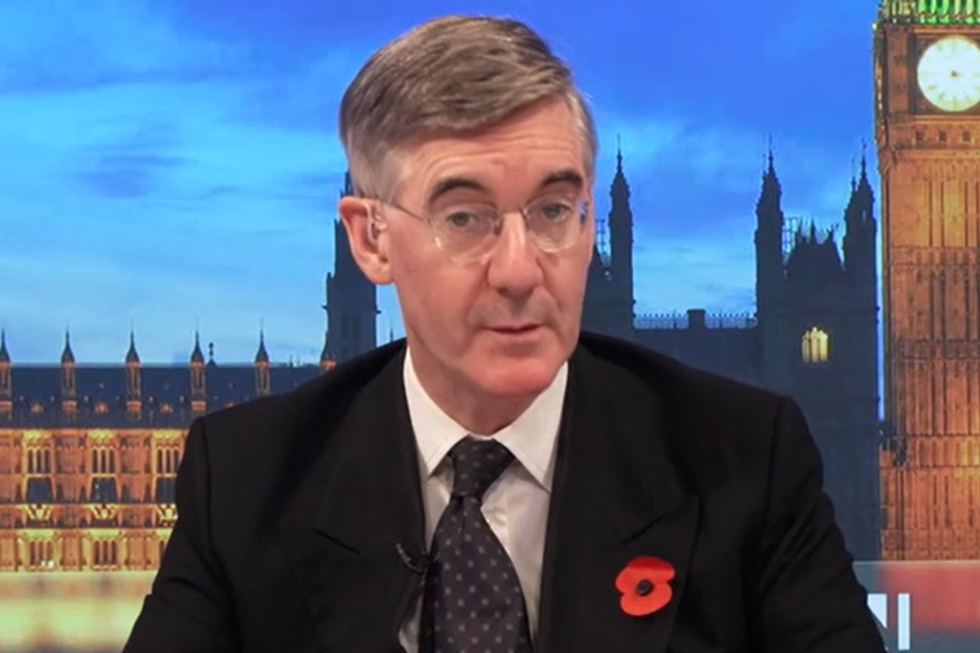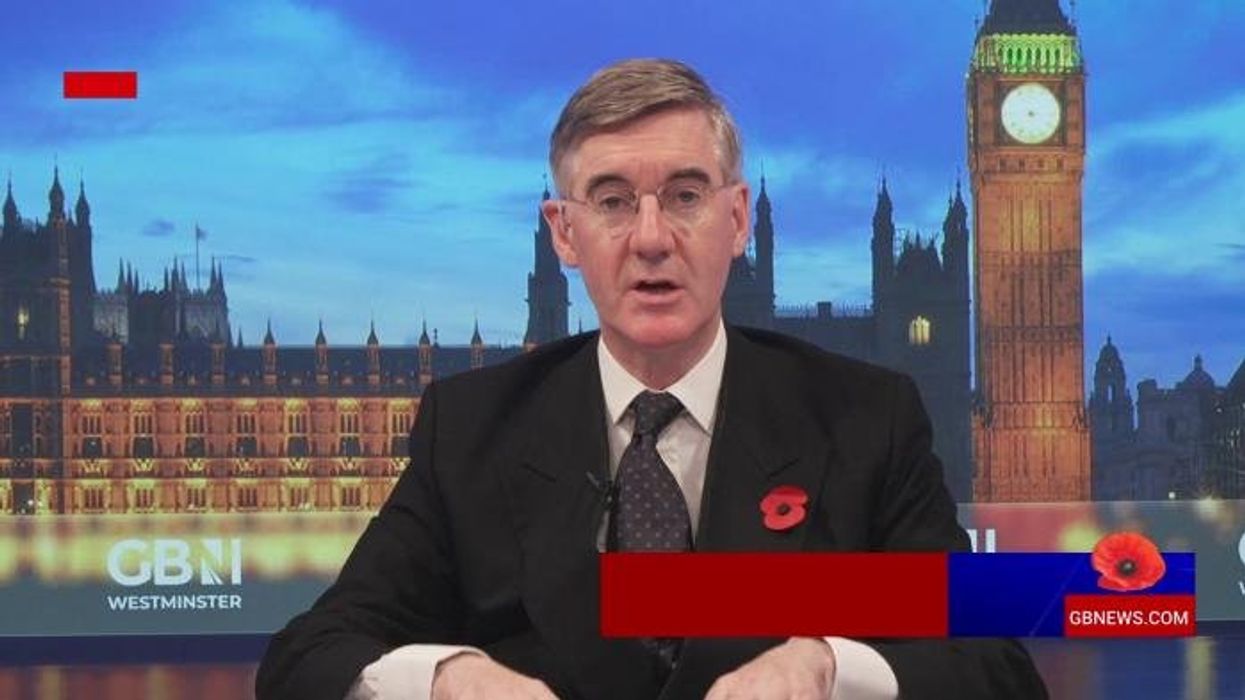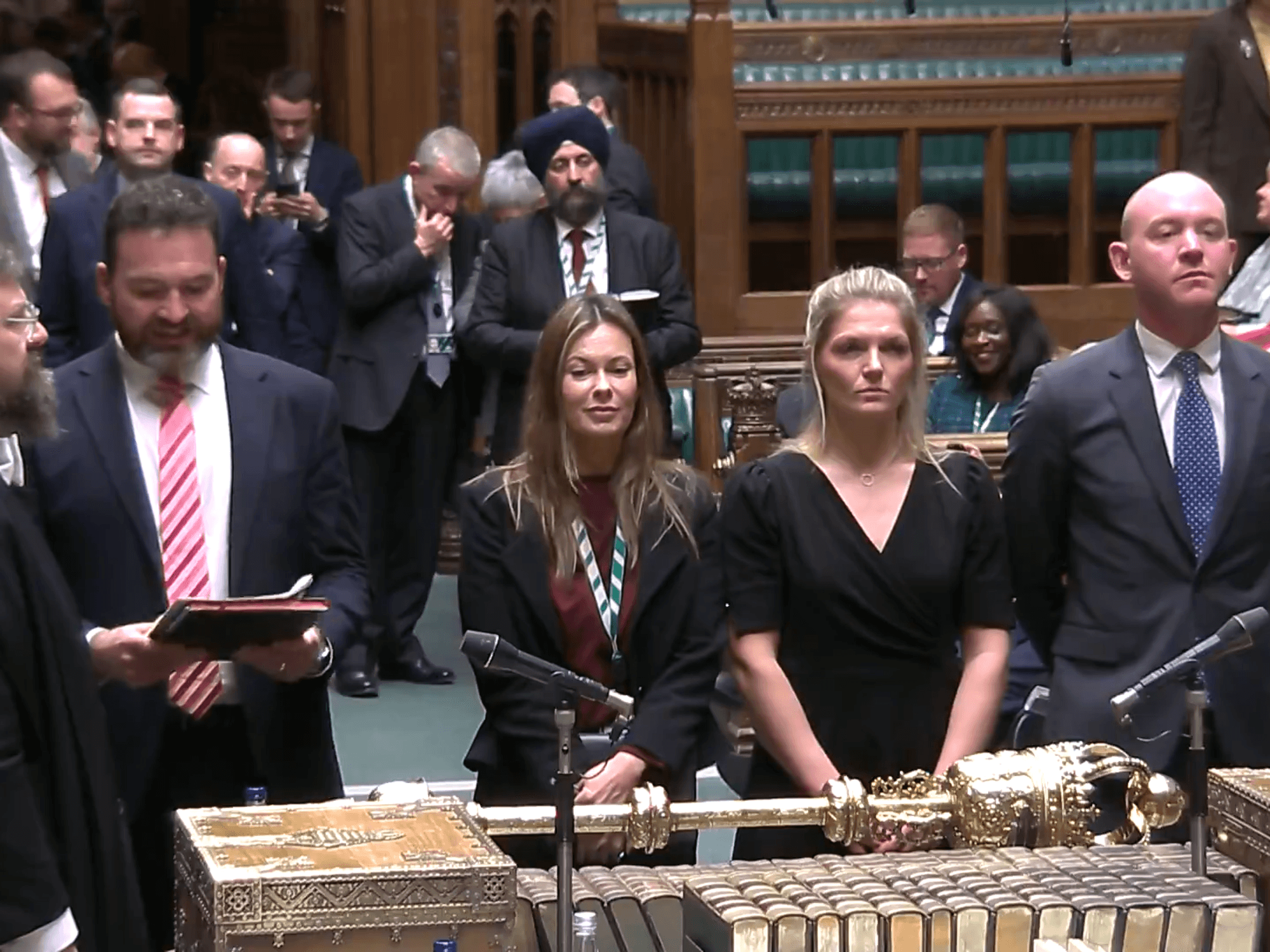'Rachel Reeves should resign if she raises taxes - the ministerial code says so,' says Jacob Rees Mogg

Jacob Rees Mogg shared his opinion on Rachel Reeves' pre-Budget speech on Tuesday
Don't Miss
Most Read
Trending on GB News
This morning, the Chancellor, Rachel Reeves, delivered a speech ahead of her Budget on November 26. We heard the usual cliches: fairness, opportunity, investing in public services, cutting debt, improving the NHS.
But was it really a warm-up act for abandoning repeated promises not to raise taxes?
Earlier today, Ms Reeves said: "Mine will be a Budget for growth, with fairness at its heart, and a Budget that supports businesses to create jobs and to innovate.
"As I take my decisions on both tax and spend, I will do what is necessary to protect families from high inflation and interest rates, to protect our public services from a return to austerity, and to ensure that the economy that we hand down to future generations is secure with debt under control."

Jacob Rees Mogg shared his opinion on Rachel Reeves' pre-Budget speech on Tuesday
|GB NEWS
TRENDING
Stories
Videos
Your Say
But what would this mean in terms of accountability and ministerial responsibility?
James Callaghan in 1967 had to devalue the pound but, as he had promised not to, e insisted on resigning and was moved to the Home Office.
He understood that impositions of economic trust, responsibility comes first. Similarly, Norman Lamont in 1992 wanted to resign, but John Major refused and kept him in office as a human shield.
Callaghan did the right thing. Lord Lamont was effectively used to protect a hopeless Prime Minister.
Norman Lamont, in the Commons, said: "When my resignation was announced 10 days ago, the reaction of many was that this was a delayed resignation. Of course, I discussed the question further with the Prime Minister.
"Subsequently, in all those discussions, he emphasised that he regarded the attacks on me as coded attacks on himself. So I decided that my duty and loyalty was to the Prime Minister and that I should remain in office."
At least the then-Prime Minister had the courtesy to stay in the Chamber to listen to those statements. Recently, Prime ministers haven't done that.
Anyway, today the Chancellor is in a comparable position to Callaghan and Lamont. She's overseen excessive public spending, and now the Budget appears as if it will require higher taxes to cover it.
In these circumstances, it's not enough to point to global events to excuse adverse effects from ministerial decisions and manifesto promises.
BUDGET 2025 LATEST:
Ministerial responsibility means accepting that when your department bungles, you carry the can. Rachel Reeves should resign if she feels she has to raise income tax, National Insurance or VAT.
Not because of political pressure, not because she's a bad person, but because of the principle of ministerial responsibility. Government acts as a team.
If a major policy fails, the minister in charge must be prepared to accept those consequences for the team. Excuses about external circumstances or political necessity cannot replace accountability, as Callaghan so clearly understood.
Contrast this with Nigel Farage yesterday, who spoke plainly about economic realities.
It was clear messaging on tax expenditure and which promises are realistic.
 Rachel Reeves will deliver the Budget in November | GETTY
Rachel Reeves will deliver the Budget in November | GETTYThe clarity that was absent from Rachel Reeves speech. He even questioned the triple lock.
The Chancellor's announcement also raises questions about her adherence to the ministerial code, which states that when Parliament is in session, the most important announcements of Government policy should be made in the first instance in Parliament.
Now, I am sure that the Speaker was furious this morning when he discovered that it was being made first to the Today programme, failing to tell the House first.
By announcing it in Downing Street in a briefing room is a clear breach and ought to be investigated by the Prime Minister's ethics adviser, Sir Laurie Magnus, who now, thanks to Keir Starmer, has the authority to launch his own investigations.
If a Budget fails to deliver, abandoning manifesto pledges, the Chancellor must take responsibility. Higher taxes, increased debt or wasted spending cannot simply be justified by external factors.
Ministerial accountability is not optional. It is fundamental to the integrity of Government and the trust the public places in its leaders.
Our Standards: The GB News Editorial Charter
More From GB News











